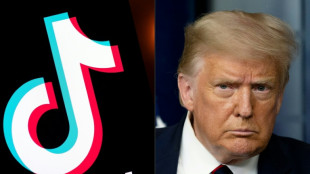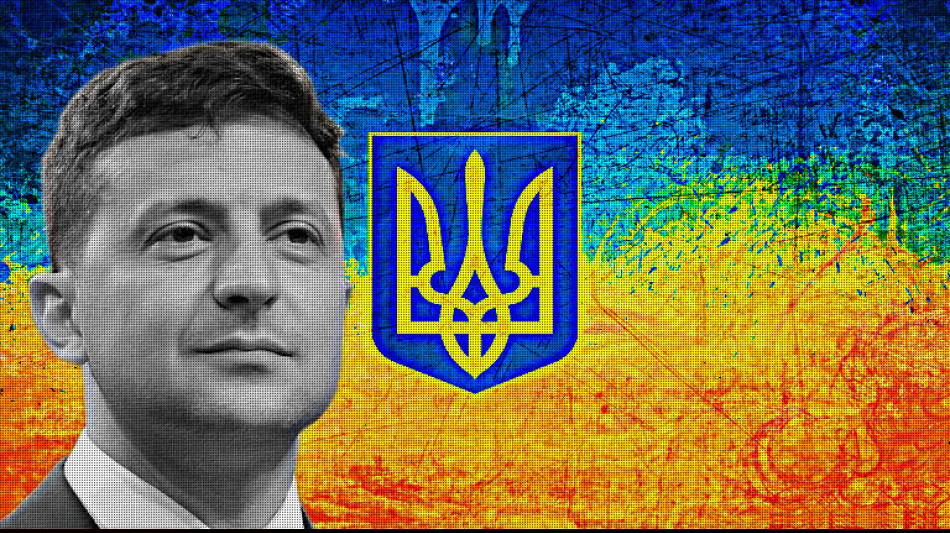-
 Sinclair, Warrican spin Pakistan to 230 all out in first Test
Sinclair, Warrican spin Pakistan to 230 all out in first Test
-
'Lucky loser' Lys makes history to reach Australian Open last 16

-
 South Korea's president in court as investigators seek to extend detention
South Korea's president in court as investigators seek to extend detention
-
Swiatek destroys Raducanu, Monfils stuns Fritz at Australian Open

-
 Veteran Monfils stuns fourth seed Fritz at Australian Open
Veteran Monfils stuns fourth seed Fritz at Australian Open
-
TikTok's journey from fun app to US security concern

-
 US TikTok ban looms as Trump seeks last-ditch solution
US TikTok ban looms as Trump seeks last-ditch solution
-
Swiss Ruegg wins uphill finish to lead women's Tour Down Under

-
 Rybakina needs physio 'magic' after fighting on at Australian Open
Rybakina needs physio 'magic' after fighting on at Australian Open
-
Swiatek destroys Raducanu as Sinner steps up Melbourne defence

-
 Impeached South Korean president arrives for arrest warrant hearing
Impeached South Korean president arrives for arrest warrant hearing
-
Irving shines as Mavs roll Thunder, Nuggets scorch Heat

-
 History-making 'lucky loser' Lys into Australian Open last 16
History-making 'lucky loser' Lys into Australian Open last 16
-
Three-set specialist Navarro credits billionaire dad for stamina

-
 Rampant Swiatek has ball 'listening' to her in rout of Raducanu
Rampant Swiatek has ball 'listening' to her in rout of Raducanu
-
Scratchy Navarro dumps Jabeur out of Australian Open

-
 In Brazil, disinformation deals Lula a bruising defeat
In Brazil, disinformation deals Lula a bruising defeat
-
South Korea court to decide on extending president's detention

-
 Slew of satellite projects aims to head off future wildfires
Slew of satellite projects aims to head off future wildfires
-
TikTok could 'go dark' in US Sunday after Supreme Court ruling

-
 Brutal Swiatek routs Raducanu to reach Australian Open last-16
Brutal Swiatek routs Raducanu to reach Australian Open last-16
-
Menendez brothers' hearing delayed by LA fires

-
 Tsunami survivor Sasaki overcame tragedy to reach MLB
Tsunami survivor Sasaki overcame tragedy to reach MLB
-
'We're entertainers': Pegula backs Djokovic call to jazz up tennis

-
 Marathon man Draper warns Alcaraz he's in for a battle
Marathon man Draper warns Alcaraz he's in for a battle
-
Israeli government approves Gaza ceasefire deal

-
 Hoffman, Hoey share PGA Tour lead in La Quinta
Hoffman, Hoey share PGA Tour lead in La Quinta
-
Japanese star Sasaki announces joining LA Dodgers

-
 39 dead in Colombia guerilla violence, govt suspends peace talks
39 dead in Colombia guerilla violence, govt suspends peace talks
-
The video games bedeviling Elon Musk

-
 Gamers tear into Musk for 'faking' video game prowess
Gamers tear into Musk for 'faking' video game prowess
-
Kvaratskhelia signs for Paris Saint-Germain from Napoli

-
 US Treasury to take 'extraordinary measures' to avoid debt default
US Treasury to take 'extraordinary measures' to avoid debt default
-
Lille warm up for Liverpool clash by going third in Ligue 1, Monaco lose

-
 Man Utd and Scotland great Denis Law dies aged 84
Man Utd and Scotland great Denis Law dies aged 84
-
Frankfurt heap more pain on Dortmund as Marmoush eyes Man City move

-
 Canada vows 'Trump tax' on US in response to tariffs: minister
Canada vows 'Trump tax' on US in response to tariffs: minister
-
'More sad than shocked': TikTok users brace for ban

-
 Global equities rally, pushing London and Frankfurt to new records
Global equities rally, pushing London and Frankfurt to new records
-
US grounds SpaceX's Starship after fiery mid-air explosion

-
 Frankfurt heap more pain on struggling Dortmund
Frankfurt heap more pain on struggling Dortmund
-
With Kvaratskhelia sale, Napoli turn page on historic Scudetto triumph

-
 US offered infrastructure incentive for DRC-Rwanda peace deal: official
US offered infrastructure incentive for DRC-Rwanda peace deal: official
-
Pochettino wants to see some Argentine spirit in his USA squad

-
 US to tighten trade rules to hit low-cost China shipments
US to tighten trade rules to hit low-cost China shipments
-
Former Man Utd striker and 'football giant' Denis Law dies aged 84

-
 Sloppy Monaco stunned by Ligue 1 strugglers Montpellier
Sloppy Monaco stunned by Ligue 1 strugglers Montpellier
-
Denis Law, the king of Man Utd's 'holy trinity'

-
 At VW home base, Germany's Scholz vows to revive economy
At VW home base, Germany's Scholz vows to revive economy
-
Frankfurt drop Marmoush against Dortmund, confirm Man City talks

China, Trump, and the power of war?
As tensions in the Taiwan Strait continue to simmer, foreign policy experts are exploring a hypothetical scenario: If China were to launch a military attack on Taiwan, would a newly re-elected President Donald Trump intervene with the full might of the U.S. armed forces to defend the island? This question underscores the complex interplay of regional alliances, global power dynamics, and the unpredictability of American politics.
Setting the Stage: China’s Military Ambitions
Historical Context:
China regards Taiwan as a breakaway province destined for reunification—by force if necessary.
Modern Capabilities:
The People’s Liberation Army (PLA) has accelerated its modernization program, including advancements in naval power, ballistic missiles, and air force technology.
Regional Impact:
An attack on Taiwan could destabilize not only East Asia but also the global economy, given Taiwan’s crucial role in semiconductor manufacturing and maritime trade routes.
The Trump Factor: A New Administration’s Possible Response
Campaign Promises and Rhetoric:
Donald Trump has a record of strong nationalist rhetoric, emphasizing American military strength. If re-elected, he might lean into campaign pledges to protect U.S. interests abroad, including key allies and partners.
Previous Policies on China:
In his earlier administration, Trump took a hardline stance against Beijing on trade, technology, and security. This history suggests he could respond forcefully if China initiates open conflict.
Alliance with Taiwan:
Although the U.S. does not maintain formal diplomatic ties with Taipei, it is bound by the Taiwan Relations Act to provide defensive support. A President Trump might interpret this as a mandate to escalate, including mobilizing U.S. forces.
Potential Military Scenarios
Naval Blockade:
The U.S. Navy could intervene by establishing a defensive perimeter around Taiwan, deterring Chinese amphibious assaults. Warship deployments to the region would send a clear signal of U.S. resolve, but also increase the risk of direct engagement.
Air Superiority Campaign:
If China’s air force attempted to dominate the skies over Taiwan, the U.S. Air Force and Navy’s carrier air wings could provide critical support to Taiwan’s defense. This scenario would significantly escalate hostilities, potentially leading to sustained aerial combat.
Economic and Cyber Warfare:
Rather than committing large numbers of troops, Trump could opt for widespread sanctions on China, coupled with cyber operations to disrupt PLA communication and logistics. This approach would be aggressive yet potentially less risky than a full-scale military confrontation.
Risks and Global Ramifications
Escalation to Major Conflict:
Direct clashes between the U.S. and China could spiral rapidly, raising concerns about nuclear brinkmanship.
Economic Fallout:
Heightened tensions may lead to severe disruptions in global supply chains, especially regarding technology and semiconductor industries.
International Alliances:
A U.S. military response would likely draw in regional allies such as Japan, South Korea, and Australia, with NATO partners possibly offering political or limited logistical support.
Diplomatic Alternatives
Negotiated Settlements: Even in a crisis, there might be space for last-minute talks hosted by neutral countries or facilitated by international bodies like the United Nations. Multinational Coalitions: The U.S. might seek to build coalitions with allies in Europe and Asia to present a united front, pressuring Beijing to halt aggression.
Conclusion: An Uncertain Future
Should China take the drastic step of attacking Taiwan, the question of American intervention under a potential new Trump administration looms large. Historical precedent—along with Trump’s combative stance on foreign policy—suggests a robust response could follow. Yet the costs, both human and economic, would be staggering for all sides involved.
In this hypothetical scenario, much depends on Beijing’s calculations of risk versus reward, as well as Trump’s willingness to gamble on a major conflict to assert U.S. influence and uphold a promise to protect American allies. Ultimately, the future of Taiwan’s sovereignty could hinge on whether deterrence succeeds—or if the world’s two largest economies find themselves at the brink of war.

EU: 90% cut of all greenhouse gas emissions by 2040?

How is climate change spreading disease?

Business: Is it important to speak multiple languages?

Trump's return could leave Europe 'on its own'

NASA and Lockheed partner present X-59 Quesst

China: Gigantic LED in a shopping centre

Did you know everything about panda bears?

Ukraine has a future as a glorious heroic state!

To learn: Chinese school bought an Airbus A320

Countries across Europe are tightening security measures

Five elections in 2024 that will shape Europe!




